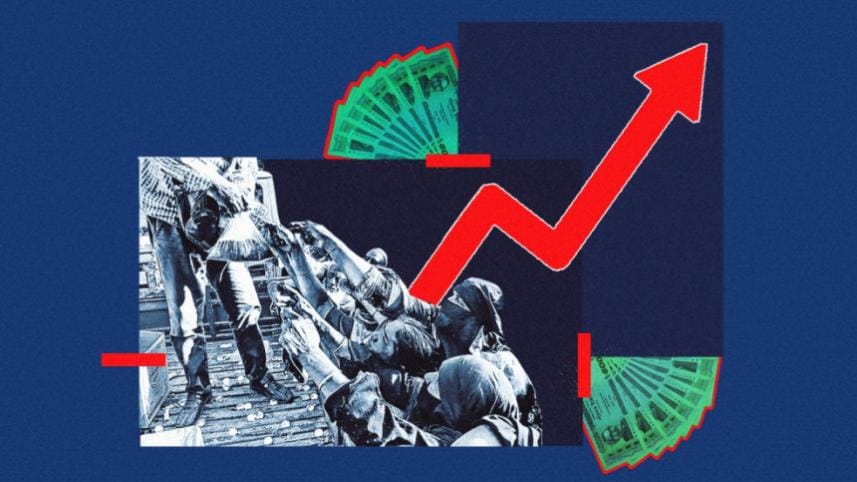The resurgence of inflation

After a brief decline, inflation in Bangladesh surged again in September 2025, raising renewed concern after a 30-month spell of persistent price increases.
The main reasons were rising import costs, the earlier depreciation of the taka against the dollar, excess liquidity, and inadequate local production.
Following the installation of the interim government, a multi-pronged strategy was launched to curb inflationary pressure.
Key measures included tightening monetary policy, offering fiscal support through reduced or withdrawn import duties, and strengthening foreign exchange reserves to facilitate the opening of letters of credit (LCs) for essential goods.
These efforts gradually brought inflation below 9 percent, though the fall was less pronounced than in peer economies.
While the Bangladesh Bank rightly sought to restrict the money supply by maintaining a high policy rate, its decision to hold the taka steady around Tk 122 per dollar appears to have been a missed opportunity.
Allowing the currency to appreciate slightly could have directly reduced import costs, offering a stronger check on imported inflation.
Core policy failures and the market syndicate
The areas where both past and current efforts have fallen short are twofold:
Inaccurate assessment of demand and supply: There has been a fundamental failure to accurately forecast national demand and the available stock of essential commodities.
For instance, the recent spike in rice prices could have been prevented had the government possessed timely and accurate data on domestic demand and stock levels, enabling it to plan imports strategically and stabilise the market.
Weak market monitoring: Oversight of market activities remains critically inadequate.
The tendency to blame a powerful "syndicate" for driving up prices persists, but the deeper issue lies in weak enforcement.
Well-intentioned monetary and fiscal measures often fail to achieve their desired outcomes because market players capture and distort the benefits.
The key question now is: if effective measures to curb syndicate control and enforce discipline cannot be implemented under a non-political interim government, then when can the nation "bell the cat" and lay the groundwork for lasting price stability?
The current resurgence of inflation is a stark reminder that structural reforms in market supervision and supply-side management are long overdue.




 For all latest news, follow The Daily Star's Google News channel.
For all latest news, follow The Daily Star's Google News channel.
Comments